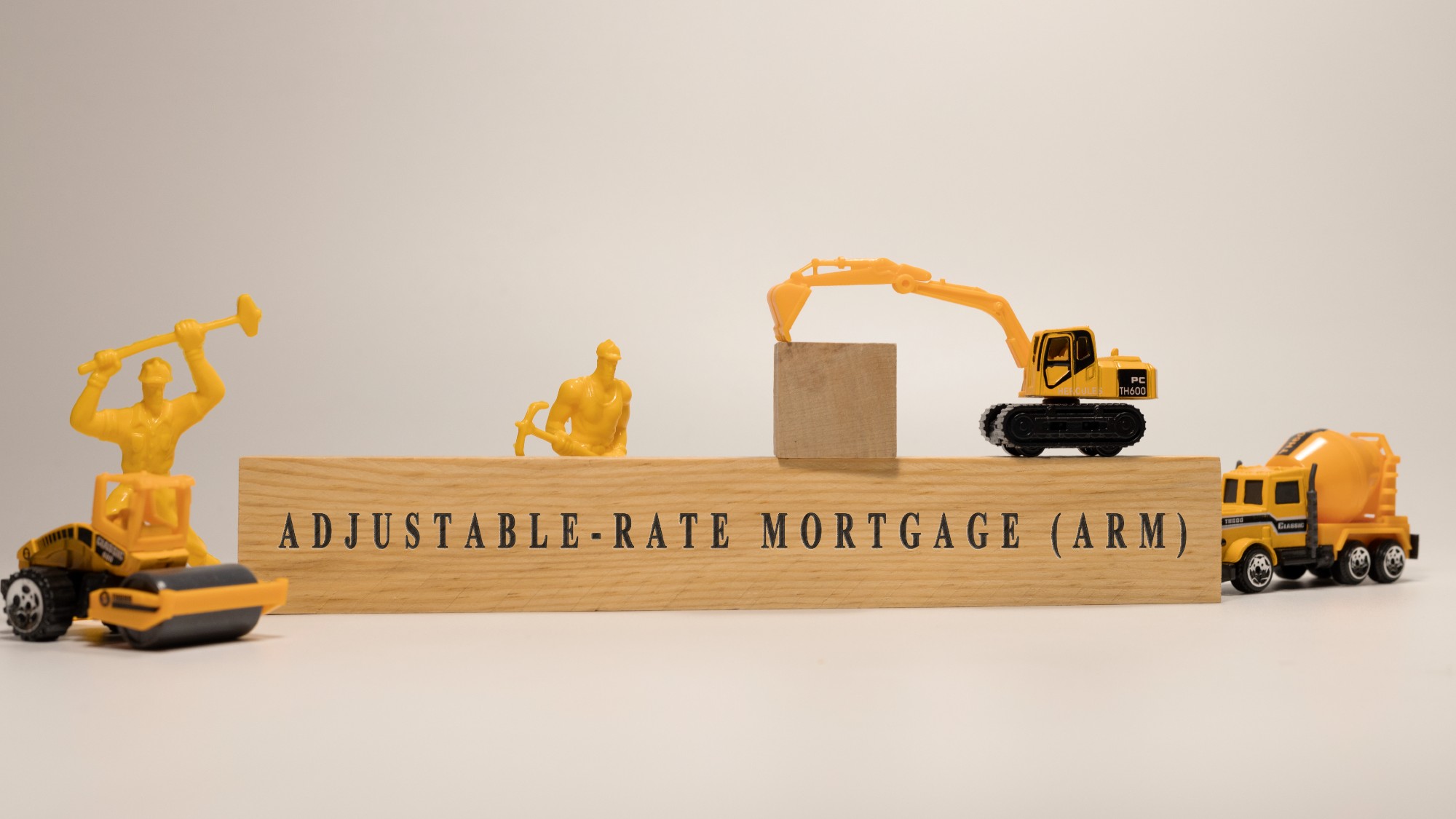Are you better off with a product transfer or remortgage for your home loan?
Product transfers are becoming more popular when a mortgage deal ends but they may not work for everyone

A free daily email with the biggest news stories of the day – and the best features from TheWeek.com
You are now subscribed
Your newsletter sign-up was successful
Despite recent announcements that many high-street providers are starting to reduce their mortgage rates, homeowners on fixed-rate deals are still facing higher prices when their arrangement ends.
However, some may be able to save money with a product transfer instead of remortgaging with a new lender.
Most customers would normally switch to a different lender at the end of a deal to avoid high standard variable rates and "bag the cheapest rate available to them", London & Country said in ThisIsMoney, but "affordability concerns" are preventing some from taking this route and they are opting for product transfers instead.
The Week
Escape your echo chamber. Get the facts behind the news, plus analysis from multiple perspectives.

Sign up for The Week's Free Newsletters
From our morning news briefing to a weekly Good News Newsletter, get the best of The Week delivered directly to your inbox.
From our morning news briefing to a weekly Good News Newsletter, get the best of The Week delivered directly to your inbox.
According to banking trade body UK Finance, 1.6 million mortgage borrowers will reach the end of their deals in 2024 and although pricing has started to drop, many will face paying higher rates than before.
The average two-year fixed rate mortgage was priced at 6.29% as of 22 November, or 5.86% for a five-year fix, Moneyfacts data shows.
In contrast, the typical rate on a two-year fixed-rate mortgage with a 60% loan-to-value in November 2021 was 1.35%, according to Bank of England data.
A 25-year £200,000 mortgage would have cost £786 per month in 2021 on a typical two-year fixed rate but would now cost £1,325.
A free daily email with the biggest news stories of the day – and the best features from TheWeek.com
UK Finance figures now show 84% of remortgaging deals were internal product transfers in the second quarter of 2023 and, within that, April was a record monthly high at 88%.
This shift tells you "much about the options, or otherwise" that borrowers have when they come to the end of their deals, said Mark Snape of Broker Conveyancing in Mortgage Strategy.
The difference between a remortgage and a product transfer
A product transfer is when you switch to a different mortgage deal with your current lender, while a remortgage is when you move to a new one.
Using a product transfer with your existing lender can be "very quick to complete" said OnlineMortgageAdvisor, as they don't usually involve a full valuation of the property if you aren't borrowing anything extra.
Borrowers don't have to go through the same "checks and balances" as a remortgage to a new lender, said ThisIsMoney, as there is no new affordability assessment and less paperwork.
You may have to pay an arrangement fee, said MoneySavingExpert, "but that's often it" as there are usually no legal, valuation or exit fees.
Benefits and drawbacks of a product transfer
A product transfer has "many benefits", said mortgage broker John Charcol, especially compared with remortgaging as there is less paperwork plus you don't usually have to prove your income and you may get "favoured rates" as an existing customer.
It may be a "suitable solution", said Yellow Brick Mortgages, especially if your circumstances have changed and "you wouldn't fit other lenders' criteria or affordability assessments" for a remortgage.
There are "no guarantees" that your lender will give you a "leading rate" though, said MoneySavingExpert, so it is important to shop around to check if you can save money by remortgaging with a rival. There are restrictions though if you want to change or remove names such as if you get divorced or if you want to move house.
Your choice is also "limited" to one lender's range, said MoneyToTheMasses, while a lack of valuation may mean you miss out on better deals from a lower loan-to-value and you can't usually change the mortgage term and amount borrowed.
Whether you choose a product transfer or remortgage, finding a deal before your current one ends is "key", said Which?, otherwise you will automatically be moved onto the standard variable rate, which is "almost always considerably more expensive".
Marc Shoffman is an NCTJ-qualified award-winning freelance journalist, specialising in business, property and personal finance. He has a BA in multimedia journalism from Bournemouth University and a master’s in financial journalism from City University, London. His career began at FT Business trade publication Financial Adviser, during the 2008 banking crash. In 2013, he moved to MailOnline’s personal finance section This is Money, where he covered topics ranging from mortgages and pensions to investments and even a bit of Bitcoin. Since going freelance in 2016, his work has appeared in MoneyWeek, The Times, The Mail on Sunday and on the i news site.
-
 Political cartoons for February 19
Political cartoons for February 19Cartoons Thursday’s political cartoons include a suspicious package, a piece of the cake, and more
-
 The Gallivant: style and charm steps from Camber Sands
The Gallivant: style and charm steps from Camber SandsThe Week Recommends Nestled behind the dunes, this luxury hotel is a great place to hunker down and get cosy
-
 The President’s Cake: ‘sweet tragedy’ about a little girl on a baking mission in Iraq
The President’s Cake: ‘sweet tragedy’ about a little girl on a baking mission in IraqThe Week Recommends Charming debut from Hasan Hadi is filled with ‘vivid characters’
-
 Six ways to boost your finances in 2026
Six ways to boost your finances in 2026The Explainer It’s not too late to make a new year’s resolution to finally get organised money-wise
-
 Could a part-and-part mortgage help you on to the property ladder?
Could a part-and-part mortgage help you on to the property ladder?The Explainer Combining repayment and interest-only mortgages could become more popular as part of a push towards more flexible lending
-
 Why it’s important to shop around for a mortgage and what to look for
Why it’s important to shop around for a mortgage and what to look forThe Explainer You can save big by comparing different mortgage offers
-
 What are portable mortgages and how do they work?
What are portable mortgages and how do they work?the explainer Homeowners can transfer their old rates to a new property in the UK and Canada. The Trump administration is considering making it possible in the US.
-
 What’s an adjustable-rate mortgage and what are the risks?
What’s an adjustable-rate mortgage and what are the risks?The Explainer Buyers are increasingly willing to take the gamble of a changing rate
-
 How will Fed rate cuts affect the housing market?
How will Fed rate cuts affect the housing market?the explainer An anticipated series of Federal Reserve cuts could impact mortgage rates
-
 What to do if you want to move but don't want to give up your low mortgage rate
What to do if you want to move but don't want to give up your low mortgage ratethe explainer 30-year mortgage rates are currently averaging 7% — and homeowners who secured rates closer to 3% during the pandemic are reluctant to sell their homes
-
 Is it worth getting an interest-only mortgage?
Is it worth getting an interest-only mortgage?The Explainer Your monthly payments may be cheaper but the full mortgage amount will need to be paid back eventually